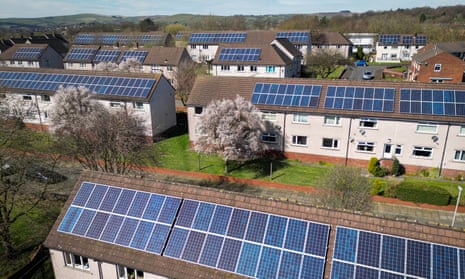Introduction
In a bold stride towards sustainability, the UK government has unveiled a comprehensive new strategy aimed at accelerating the nation’s transition to renewable energy. The plan, announced earlier this week, underscores the UK’s commitment to reducing carbon emissions and positions the country as a leader in global environmental efforts. As international climate negotiations heat up, the UK’s actions are setting a benchmark for other nations grappling with their own energy dilemmas.
The New Strategy: Key Components
The new strategy encompasses a variety of measures designed to enhance the UK’s green credentials. Key elements of the plan include:
- Expansion of Offshore Wind Farms: The UK will significantly increase its investment in offshore wind technology flnewsdaily.com, targeting an additional 10 gigawatts of capacity by 2030. This expansion is expected to generate thousands of new jobs and reinforce the UK’s position as a leading producer of wind energy.
- Investment in Green Hydrogen: The government is allocating substantial funds to develop green hydrogen infrastructure. This clean fuel is seen as pivotal in decarbonizing industries that are difficult to electrify, such as steel production and heavy transportation.
- Enhanced Energy Efficiency Programs: A major focus of the strategy is improving energy efficiency in both residential and commercial buildings. New regulations and incentives are being introduced to encourage retrofitting and the adoption of energy-saving technologies.
- Support for Emerging Technologies: The strategy includes provisions for research and development in emerging green technologies, such as advanced battery storage and carbon capture and storage (CCS). This support aims to drive innovation and reduce costs over the long term.
- Green Finance Initiatives: The UK is also introducing new green finance mechanisms to encourage private investment in sustainable projects. This includes green bonds and subsidies for businesses that commit to reducing their carbon footprint.
Impact on the Economy and Environment
The UK’s ambitious plan is expected to have far-reaching effects on both the economy and the environment. Economically, the strategy promises to create thousands of new jobs, particularly in the renewable energy sector, and stimulate growth in related industries. The focus on green hydrogen and energy efficiency could also lead to significant cost savings for businesses and consumers in the long run.
Environmentally, the strategy aims to make a substantial dent in the UK’s carbon emissions, aligning with international climate targets and potentially positioning the UK as a model for other countries. The increased use of renewable energy sources and improvements in energy efficiency are crucial steps in combating climate change and mitigating environmental impact.
Challenges and Criticisms
Despite the positive outlook, the strategy has faced some criticisms and challenges. There are concerns about the feasibility of meeting ambitious targets within the proposed timelines, particularly given the complexities of scaling up new technologies and infrastructure. Some critics argue that the plan does not go far enough in addressing the need for more immediate and radical reductions in emissions.
Additionally, the transition to a green economy will require substantial upfront investment and could face resistance from industries accustomed to traditional energy sources. The government’s ability to manage these transitions smoothly and address any potential disruptions will be crucial for the strategy’s success.
Conclusion
The UK’s new energy strategy marks a significant step forward in the global effort to combat climate change. By setting ambitious targets and investing heavily in renewable technologies, the UK is not only addressing its own environmental impact but also contributing to a broader global movement towards sustainability. As the plan unfolds, all eyes will be on the UK to see how effectively it can navigate the challenges and leverage the opportunities of this green transition.
The coming months will be critical in determining the success of this strategy, and the UK’s progress will likely influence other nations as they develop their own climate policies. For now, the world watches with interest as the UK takes its place at the forefront of the global energy transition.

